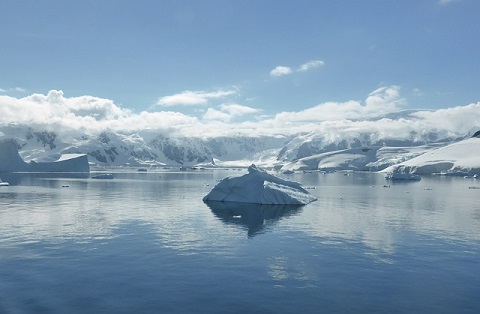
The Year 5-8 students, who received the honour after winning a competition to name the nation’s new Antarctic icebreaker RSV Nuyina, flew the 6,000 kilometre round-trip from Hobart to Australia’s Wilkins Aerodrome last week.
Upon landing, the students and their teachers spent three hours on the ice meeting Australian scientists and expeditioners, visiting an Antarctic field camp and learning about the important role Antarctica plays in the global climate system.
St Virgil’s College principal, Terry Blizzard, said the opportunity for his school to be involved in the program came about after Year 8 student, Haidar Alnasser – as part of his science studies – won a National competition to name Australia’s new ice breaker, which will be commissioned in 2020.
“After considerable research and consultation with the College’s Aboriginal Education Officer, he submitted the name RSV Nuyina, which is from the revived form of the original Tasmanian Aboriginal languages palawa kani, meaning ‘southern lights’,” Blizzard told The Educator.
“The winning name Nuyina for the Hobart-based ship recognises the long spiritual connection Tasmanian Aboriginal people have with the frozen continent, as the most southerly humans on the planet during the last ice age.”
Blizzard said the students were “humbled” to be the first Australian students to set foot on the continent.
“As well as being taken by the majestic beauty of Antarctica they were struck by the commitment of scientists and other staff in undertaking important work on behalf of all peoples of the world,” he said.
Blizzard said the work around climate change was particularly poignant for students with a number noting that the experience had strengthened their interest in working in the areas of environmental and marine sciences.
“As a Catholic College in Hobart, we understand the importance of studying our environment and understanding how it works, as well as our responsibility to care and nurture it for future generations,” he said.
“Living on an island provides students with numerous opportunities to understand the issues that impact on these responsibilities and the relationship that all humans have with the environment.”
Related stories:
Students get chance to shine on global stage
Students score excursion of a lifetime


